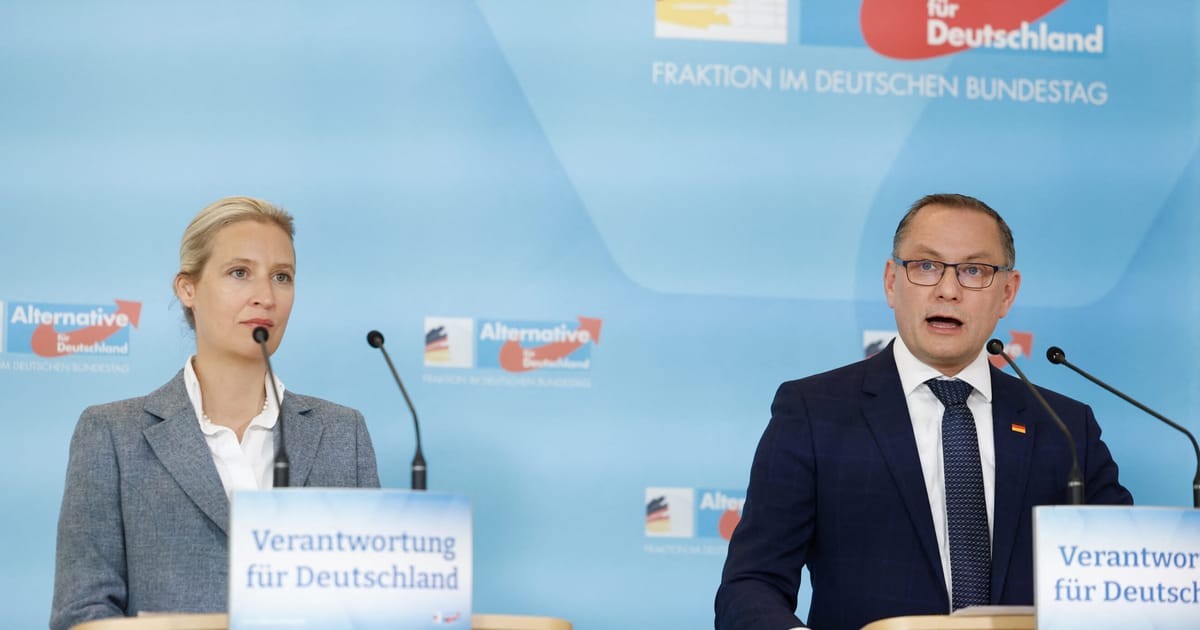Following allegations of dodgy links to Russia and China, one lawmaker referred to Alternative for Germany as a “party of treason.”
The far-right Alternative for Germany party (AfD) is in dire trouble as it deals with the fallout of allegations that two of its leading candidates for the European election have dodgy links to Russia and China.
During a debate in parliament today, lawmakers from across the political spectrum slammed the AfD, accusing the party of pandering to authoritarian regimes and presenting a security risk to Germany’s democracy.
The party is “betraying and selling out the German people,” Marc Henrichmann, a lawmaker for the center-right Christian Democratic Union (CDU) said. The AfD, he added, is a “right-wing party of treason.”
Dirk Wiese, a lawmaker belonging to Chancellor Olaf Scholz’s center-left Social Democratic Party (SPD), accused the AfD of “feigned patriotism,” adding: “Maybe it’s not your own country that you love so much. Maybe it’s dictatorships like China, Russia and Belarus.”



This is the best summary I could come up with:
The far-right Alternative for Germany party (AfD) is in dire trouble as it deals with the fallout of allegations that two of its leading candidates for the European election have dodgy links to Russia and China.
During a debate in parliament today, lawmakers from across the political spectrum slammed the AfD, accusing the party of pandering to authoritarian regimes and presenting a security risk to Germany’s democracy.
Dirk Wiese, a lawmaker belonging to Chancellor Olaf Scholz’s center-left Social Democratic Party (SPD), accused the AfD of “feigned patriotism,” adding: “Maybe it’s not your own country that you love so much.
At the same time, Petr Bystron, second on the AfD’s list for the EU election, is also facing allegations, reported on extensively by the German media outlet Der Spiegel, that he received €20,000 from people with links to Russian President Vladimir Putin in order to spread Kremlin propaganda.
“The AfD willingly throws itself at dictators and autocrats, it rewards corrupt and criminal characters with top positions,” said deputy leader of the FDP parliamentary group, Konstantin Kuhle.
German Interior Minister Nancy Faeser, of the Social Democratic Party, rejected that accusation, stressing that, in Germany, only public prosecutors and courts decide on the timing of arrests — not the government.
The original article contains 631 words, the summary contains 206 words. Saved 67%. I’m a bot and I’m open source!